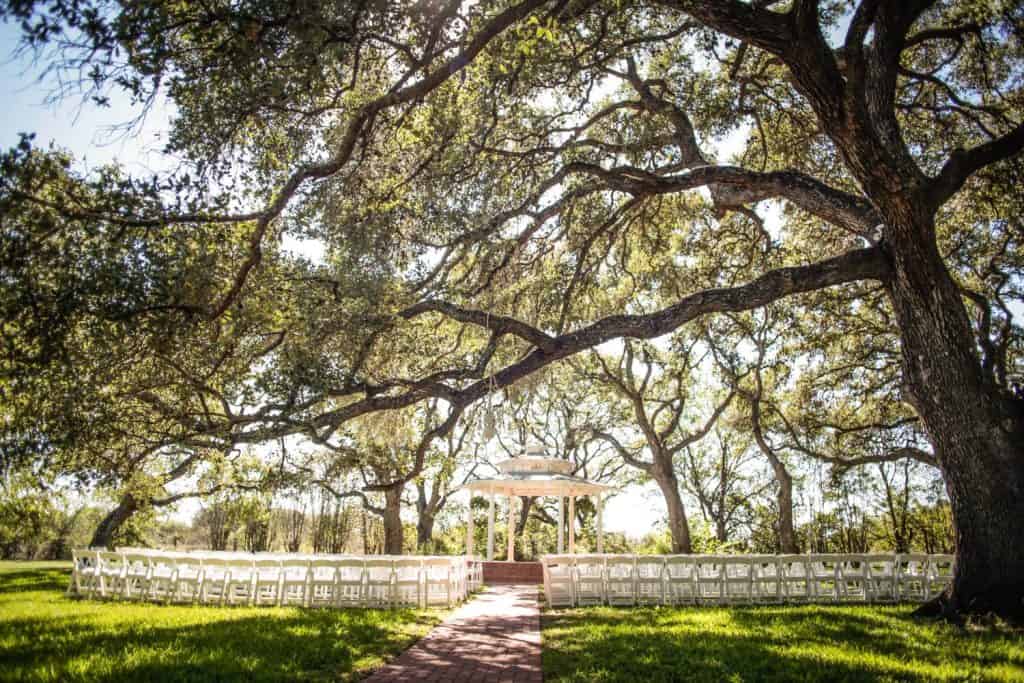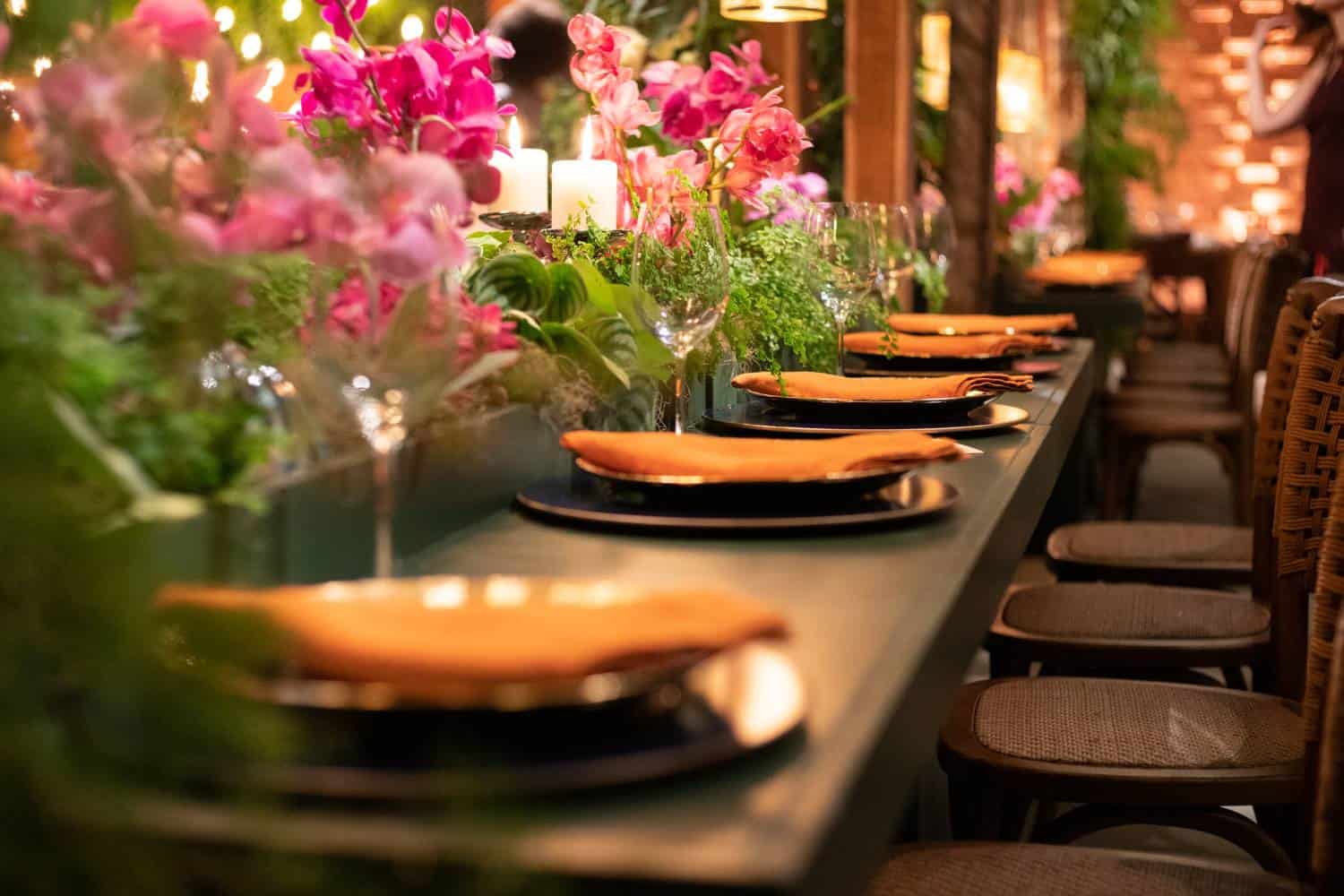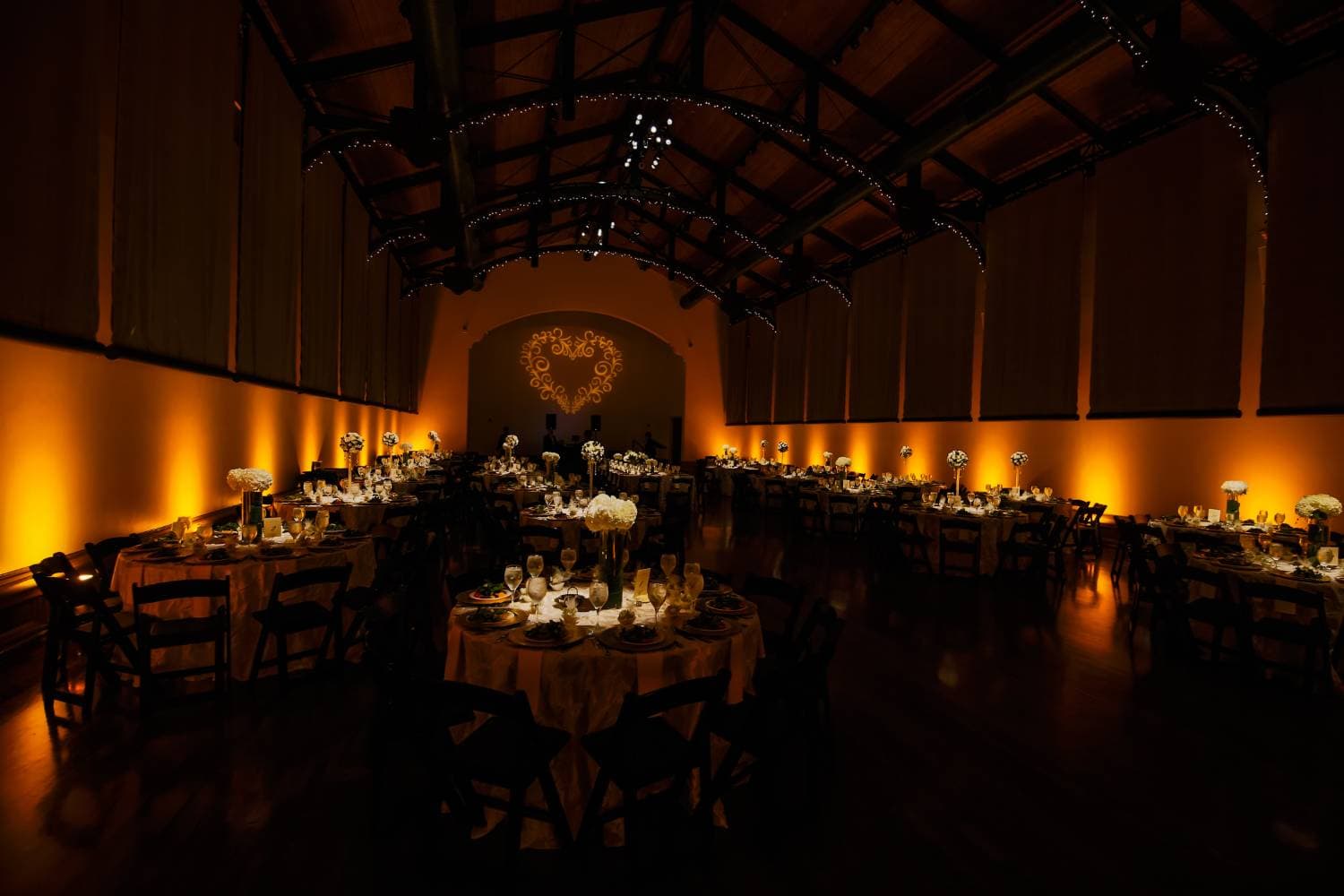Your wedding day is a joyous occasion filled with love, laughter, and cherished memories. But as you plan this momentous event, have you considered the environmental impact of your choices? Choosing an eco-friendly wedding venue is not only a beautiful way to celebrate your love but also a chance to make a positive impact on the planet.
Find the answer on why selecting an eco-conscious venue matters, where to find them, and what key factors to consider when searching for the perfect setting for your special day.
Table of Contents
Why Eco-Friendly Wedding Venues Matter
Your wedding is an opportunity to make choices that align with your values and beliefs, including environmental sustainability. Opting for an eco-friendly wedding venue allows you to minimise your carbon footprint and support businesses that prioritise eco-conscious practices. By reducing energy consumption, minimising waste, and supporting local communities, you can create a wedding that reflects your commitment to a greener future.
Researching Locations with Eco-Friendly Wedding Venue Offerings
Finding an eco-friendly wedding venue is easier than you might think, thanks to the growing demand for sustainable options. Start your search by looking for venues that advertise their eco-friendly practices or have received green certifications such as LEED.
Outdoor venues, such as parks, gardens, and farms, often offer picturesque settings with lower environmental footprints. Don't hesitate to explore unconventional options like nature reserves or eco-lodges for a truly unique and sustainable wedding experience.
Must-Have Features in an Eco-Friendly Wedding Venue
When evaluating potential eco-friendly wedding venues, consider the following factors:
- Location and Transportation: Choose a venue that is easily accessible by public transportation or offers shuttle services to minimise carbon emissions from guest travel.
- Energy Efficiency: Look for venues equipped with energy-efficient lighting, heating, and cooling systems, as well as renewable energy sources like solar panels.
- Waste Management: Inquire about the venue's waste management practices, including recycling and composting programs, to reduce waste sent to landfills.
- Sustainable Catering: Select a venue that offers sustainable catering options, such as locally sourced and organic ingredients, to support local farmers and reduce food miles.
- Water Conservation: Choose venues with water-saving measures like low-flow faucets and toilets, as well as drought-resistant landscaping, to minimise water usage.
- Green Certifications: Look for venues that have received certifications for their eco-friendly practices, such as LEED certification, to ensure they meet sustainability standards.
- Outdoor Spaces: Consider venues with beautiful outdoor spaces for your ceremony and reception, as outdoor weddings typically have a lower environmental impact than indoor events.
- Support for Local Communities: Opt for venues that give back to their local communities and support environmental conservation efforts through donations or volunteer programs.
- Minimalism and Repurposing: Choose venues that embrace minimalism and repurpose existing structures or materials to reduce waste and environmental impact.
By prioritising these factors when selecting an eco-friendly wedding venue, you can create a memorable and sustainable celebration that reflects your love for each other and the planet. Your wedding day will not only be a beautiful occasion but also a meaningful step towards a brighter, greener future.
Evaluating Venue Location in Relation to Guests
The location of your wedding venue plays a significant role in its environmental impact, particularly in terms of transportation emissions. Consider choosing a venue that is centrally located or easily accessible by public transportation to minimise the distance guests need to travel. Alternatively, if you're hosting a destination wedding, select a venue that offers accommodation options nearby to reduce the need for additional travel.
Sustainable Catering Choices for Your Wedding
When it comes to planning an eco-friendly wedding, one of the most significant considerations is the catering options offered by the venue. Food plays a central role in wedding celebrations, but it can also have a substantial environmental impact.
Opting for eco-friendly catering options is not only a way to support sustainable practices but also an opportunity to delight your guests with delicious, locally sourced cuisine. Here are some key factors to consider when evaluating the catering options at potential eco-friendly wedding venues:
- Locally Sourced Ingredients: Look for venues that prioritise locally sourced ingredients in their catering menus. Choosing locally grown produce, meat, and dairy products reduces the carbon footprint associated with food transportation and supports local farmers and producers. Seasonal menus that feature ingredients that are in abundance during specific times of the year not only ensure freshness and flavour but also contribute to sustainability by minimising the need for long-distance transportation.
- Organic and Sustainable Food Practices: Inquire about the venue's commitment to organic and sustainable food practices. Organic farming methods eschew synthetic pesticides and fertilisers, promoting soil health and biodiversity. Similarly, sustainable food practices encompass ethical sourcing, fair labour practices, and minimal environmental impact throughout the food supply chain. Choose venues that prioritise organic and sustainable food practices to ensure that your wedding menu reflects your commitment to environmental responsibility.
- Minimal Food Waste: Food waste is a significant environmental issue, contributing to greenhouse gas emissions and wasting valuable resources. Select venues that have strategies in place to minimise food waste, such as portion control, donation programs for leftover food, and composting initiatives. Buffet-style service can often lead to excess food waste, so consider alternatives such as plated meals or family-style service to reduce the likelihood of leftovers.
- Biodegradable and Compostable Serveware: Consider venues that use biodegradable or compostable serveware, such as plates, utensils, and cups, to minimise the environmental impact of your wedding festivities. These eco-friendly alternatives break down naturally over time, reducing the amount of waste sent to landfills. Avoid venues that rely heavily on single-use plastics, which contribute to pollution and harm marine life and ecosystems.
- Creative and Sustainable Menu Options: Work with the venue's catering team to create a wedding menu that is not only delicious but also sustainable. Incorporate plant-based dishes and vegetarian or vegan options to reduce the carbon footprint of your meal. Explore creative and innovative menu ideas that highlight seasonal and locally sourced ingredients, showcasing the culinary diversity of your region while supporting sustainable agriculture.
By prioritising eco-friendly catering options when selecting your wedding venue, you can ensure that your celebration is not only a feast for the senses but also a testament to your commitment to environmental stewardship.
Policies on Waste Reduction and Plastic Use
When evaluating an eco-friendly wedding venue, it's crucial to delve into their plastic usage and waste management policies. Here's what to consider:
- Single-Use Plastic Alternatives: Ensure the venue opts for biodegradable or compostable alternatives instead of single-use plastics like straws, utensils, and cups. Plastic alternatives reduce environmental pollution and harm to ecosystems.
- Waste Reduction Strategies: Look for venues implementing waste reduction measures such as digital invitations, water stations instead of bottled water, and encouraging guests to bring reusable items. These strategies minimise waste generation, showcasing the venue's commitment to sustainability.
- Recycling and Composting Programs: Inquire about the venue's recycling and composting programs, including separate bins for recyclable materials and composting organic waste like food scraps. Such initiatives divert waste from landfills, reducing the wedding's environmental impact.
- Food Donation Policies: Choose venues with policies for donating leftover food to local charities or food banks. Food waste is a significant issue, and donating excess food to those in need is a sustainable solution that aligns with the venue's social responsibility.
- Educational Initiatives: Consider venues that offer educational resources on sustainability topics like waste reduction, recycling, and composting. These initiatives empower individuals to make informed choices and contribute to a culture of environmental responsibility.
By selecting a venue with robust plastic and waste policies, you ensure your wedding celebration is not only beautiful but also environmentally responsible. Collaborate with the venue to implement sustainable practices, hosting a wedding that reflects your values and supports a healthier planet.
Inclusions within the Venue Package
When evaluating potential eco-friendly wedding venues, it's essential to consider the package inclusions offered. Look for venues that provide comprehensive packages that align with your sustainability goals.
This may include eco-friendly decor options, such as reusable or biodegradable materials, as well as energy-efficient lighting and climate control systems. Additionally, inquire about any eco-conscious amenities or services included in the package, such as organic floral arrangements or sustainable transportation options for guests.
Accommodation Selections
If you're hosting a destination wedding or have guests travelling from out of town, accommodation options are a crucial consideration. Choose a venue that offers eco-friendly lodging options nearby to minimise the environmental impact of guest travel. Consider the offerings included in the venue's wedding packages:
- Eco-Friendly Decor Options: Look for reusable or biodegradable materials for decor, minimising environmental impact.
- Energy-Efficient Lighting and Climate Control: Opt for venues with energy-efficient systems to reduce energy consumption.
- Sustainable Transportation Options: Choose venues offering eco-friendly transportation solutions for guests, minimising carbon emissions.
- Locally Sourced and Organic Catering: Prioritise venues providing locally sourced and organic catering options, supporting sustainable agriculture.
- Waste Management Programs: Inquire about the venue's waste reduction, recycling, and composting initiatives to minimise environmental impact.
By assessing the venue's package inclusions, you can ensure your wedding aligns with your eco-friendly values while enjoying a memorable celebration.
Environmental Conservation Initiatives
One of the most significant advantages of choosing an eco-friendly wedding venue is the opportunity to support environmental initiatives and conservation efforts. Inquire about the venue's environmental policies and initiatives, such as waste reduction programs, renewable energy sources, and partnerships with local conservation organisations.
Look for venues that are committed to minimising their ecological footprint through sustainable practices and initiatives that benefit the surrounding community and ecosystem.
Essential Inquiries for Potential Venues
When evaluating potential eco-friendly wedding venues, it's essential to ask the right questions to ensure they align with your sustainability goals. Here are some key inquiries to consider:
- What are your energy and water conservation practices? Inquire about the venue's efforts to minimise energy consumption through initiatives such as energy-efficient lighting, heating, and cooling systems, as well as water-saving measures like low-flow fixtures and drought-resistant landscaping.
- Do you offer sustainable catering options? Ask about the venue's catering policies and whether they offer locally sourced, organic, or seasonal menu options. Choosing a venue that prioritises sustainable food practices can significantly reduce the environmental impact of your wedding.
- What is your waste management policy? Inquire about the venue's waste management practices, including recycling and composting programs. Look for venues that minimise waste sent to landfills and prioritise recycling and composting to reduce their ecological footprint.
- Do you have eco-friendly transportation options? Consider venues that offer sustainable transportation options for guests, such as shuttle services or partnerships with local transportation providers. Encouraging guests to carpool or utilise public transportation can help reduce carbon emissions associated with travel to and from the venue.
- What environmental certifications or initiatives do you have in place? Look for venues that have received green certifications such as LEED (Leadership in Energy and Environmental Design) or participate in environmental initiatives and partnerships with local conservation organisations.
Closing Tips for Venue Selection
As you continue your search for the perfect eco-friendly wedding venue, keep these final tips in mind:
- Visit potential venues in person: Schedule site visits to get a firsthand look at each venue's facilities and environmental practices. Pay attention to details such as natural lighting, green spaces, and eco-friendly amenities.
- Read reviews and testimonials: Research online reviews and testimonials from past couples who have hosted weddings at the venues you're considering. Their experiences can provide valuable insights into the venue's eco-friendly practices and overall quality.
- Consider the overall vibe and aesthetic: Beyond sustainability, choose a venue that aligns with your vision for your wedding day. Whether you're dreaming of a rustic barn wedding or a modern urban affair, select a venue that reflects your style and personality.
- Trust your instincts: Ultimately, trust your instincts and choose a venue that feels right for you and your partner. Remember that your wedding day is a celebration of your love, and selecting an eco-friendly venue is a meaningful way to honour your commitment to each other and the planet.
Conclusion
Planning a wedding entails more than just selecting a venue; it's an opportunity to make environmentally conscious choices that reflect your values. Opting for an eco-friendly wedding venue not only reduces your carbon footprint but also supports businesses prioritising sustainability. From energy-efficient lighting to waste management programs, these venues offer a myriad of green features, making it easier than ever to plan a sustainable celebration.
With the increasing demand for eco-conscious options, finding such venues has become more accessible, from outdoor locations like parks and gardens to unconventional settings such as eco-lodges. By prioritising factors like location, energy efficiency, waste reduction, and support for local communities, couples can create memorable weddings that leave a positive impact on both their guests and the planet.
Catering plays a pivotal role in wedding celebrations, making it essential to prioritise eco-friendly options. Choosing locally sourced, organic ingredients not only supports sustainable agriculture but also reduces the carbon footprint associated with food transportation. Minimising food waste through portion control and donation programs further enhances the sustainability of the event.
By opting for biodegradable or compostable serveware and incorporating plant-based menu options, couples can ensure that their wedding feast is not only delicious but also environmentally responsible. Selecting venues with robust plastic use and waste management policies further reinforces the commitment to hosting an eco-conscious celebration, ultimately creating a wedding that reflects both love for each other and the planet.
Content Summary
- Your wedding is a chance to celebrate love while considering the environmental impact.
- Opting for an eco-friendly venue reduces your carbon footprint and supports sustainability.
- Research eco-conscious venues that prioritise energy efficiency and waste reduction.
- Look for venues with green certifications like LEED to ensure sustainability standards.
- Consider outdoor venues such as parks and gardens for a lower environmental footprint.
- Choose venues easily accessible by public transportation to minimise emissions.
- Prioritise venues with energy-efficient lighting and renewable energy sources.
- Inquire about waste management practices, including recycling and composting programs.
- Select venues offering sustainable catering with locally sourced and organic ingredients.
- Choose venues with water-saving measures like low-flow faucets and drought-resistant landscaping.
- Support venues that give back to local communities and environmental conservation efforts.
- Embrace minimalism and repurposing to reduce waste and environmental impact.
- Create a memorable and sustainable celebration by prioritising eco-friendly venues.
- Consider the venue's location in relation to guests to minimise transportation emissions.
- Opt for eco-friendly catering options featuring locally sourced and organic ingredients.
- Reduce food waste by implementing portion control and donation programs.
- Choose venues with biodegradable or compostable serveware to minimise waste.
- Collaborate with venues to implement sustainable practices for a greener celebration.
- Assess venue package inclusions for eco-friendly decor and amenities.
- Select venues with eco-friendly lodging options for destination weddings.
- Prioritise venues with waste reduction, recycling, and composting initiatives.
- Support venues committed to environmental conservation and renewable energy.
- Inquire about energy and water conservation practices during venue selection.
- Choose venues offering sustainable catering options for a greener menu.
- Ask about waste management policies, including recycling and composting programs.
- Consider venues with eco-friendly transportation options for guests.
- Look for venues with green certifications or environmental initiatives in place.
- Visit potential venues in person to assess their environmental practices.
- Read reviews and testimonials from past couples to gauge venue sustainability.
- Consider the overall vibe and aesthetic of venues while prioritising sustainability.
- Trust your instincts when selecting an eco-friendly venue that aligns with your values.
- Opt for venues with natural lighting and eco-friendly amenities for a sustainable celebration.
- Support venues that prioritise environmental stewardship and conservation efforts.
- Inquire about energy and water conservation efforts during venue selection.
- Choose venues offering sustainable catering options with locally sourced ingredients.
- Select venues with comprehensive waste management policies for reduced environmental impact.
- Consider venues with eco-friendly transportation options for guests' convenience.
- Look for green certifications or environmental initiatives when evaluating venues.
- Schedule site visits to assess venues' environmental practices firsthand.
- Research online reviews and testimonials to gauge venue sustainability.
- Prioritise venues that align with your vision for a sustainable wedding celebration.
- Trust your instincts and choose a venue that feels right for you and your partner.
- Make your wedding day a celebration of love and sustainability by selecting an eco-friendly venue.
Frequently Asked Questions
Look for clear policies and fee structures, good communication practices, ample amenities, positive reviews, and adaptability to your needs.
Ask detailed questions during venue tours, carefully review contracts, and seek clarification on any unclear points to ensure transparency.
Communicate your concerns with venue staff, seek alternative options if necessary, consult with wedding professionals, and trust your instincts.
Online reviews provide insights into a venue's reputation, service quality, and potential issues, helping you make informed decisions.
Prioritise amenities like adequate restroom facilities, parking, bridal suites, catering services, ceremony spaces, and audiovisual equipment based on your preferences and needs.



